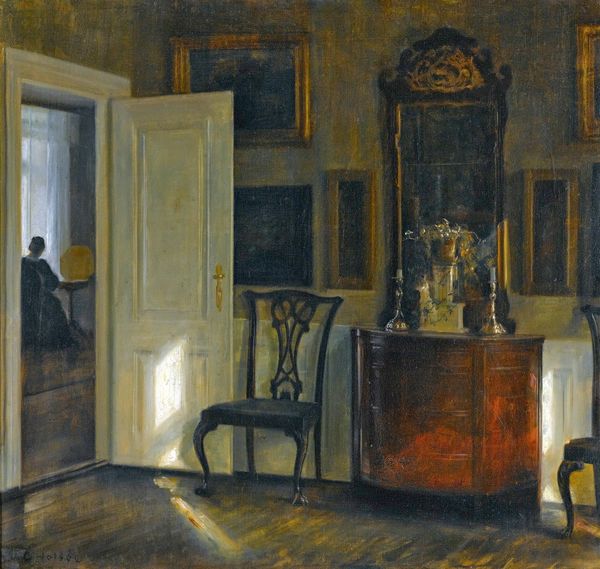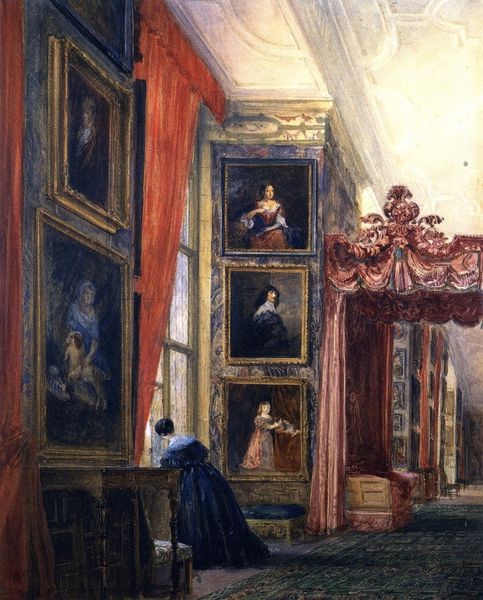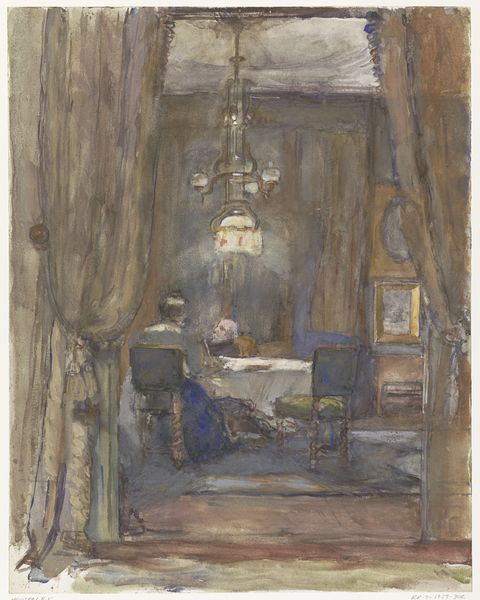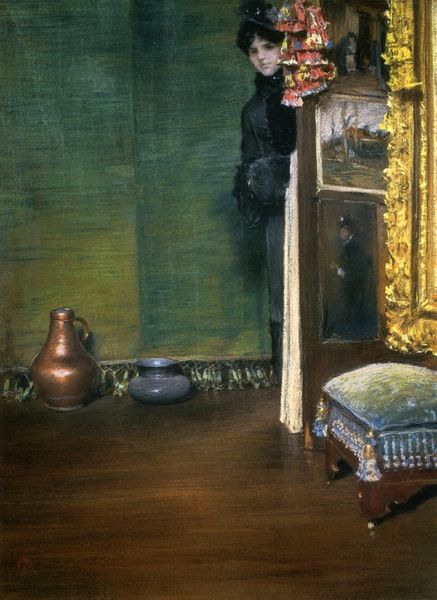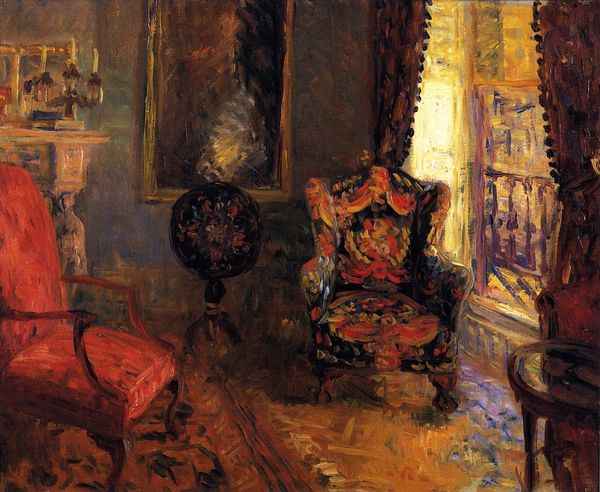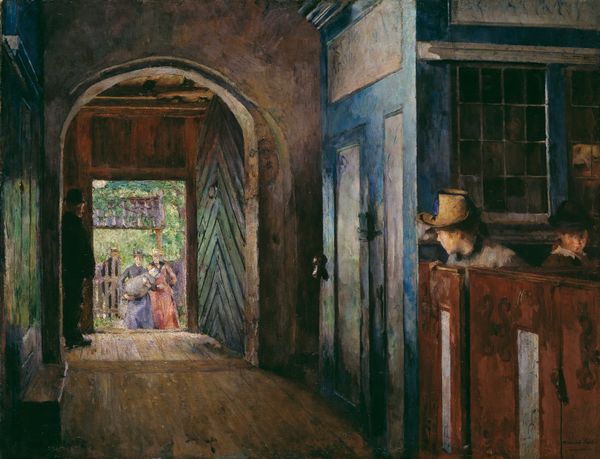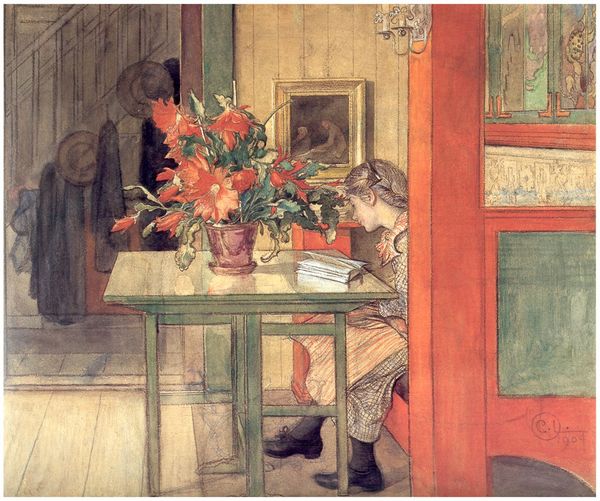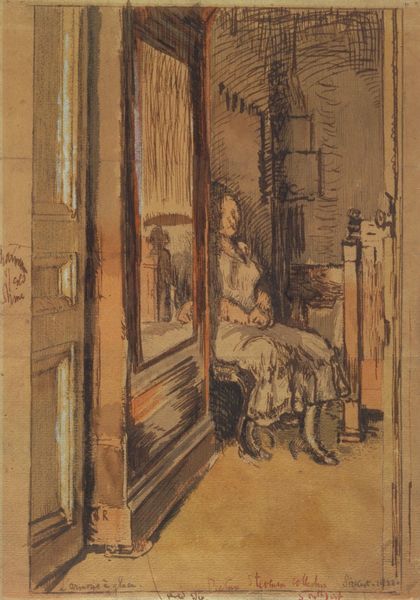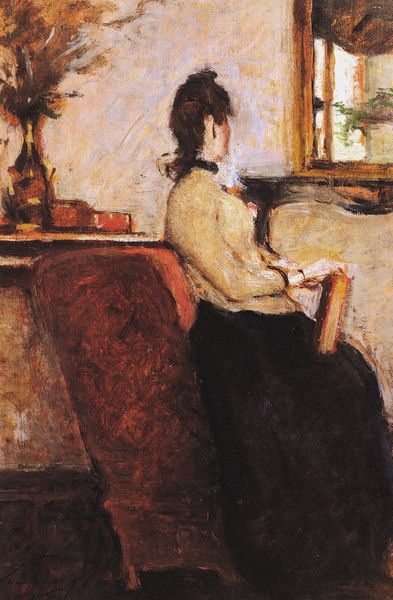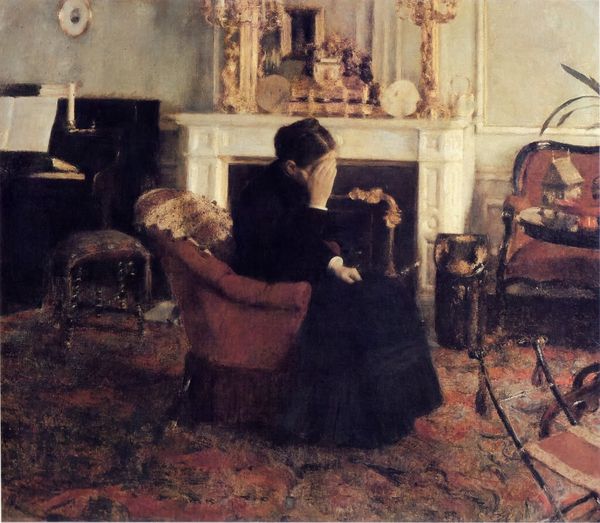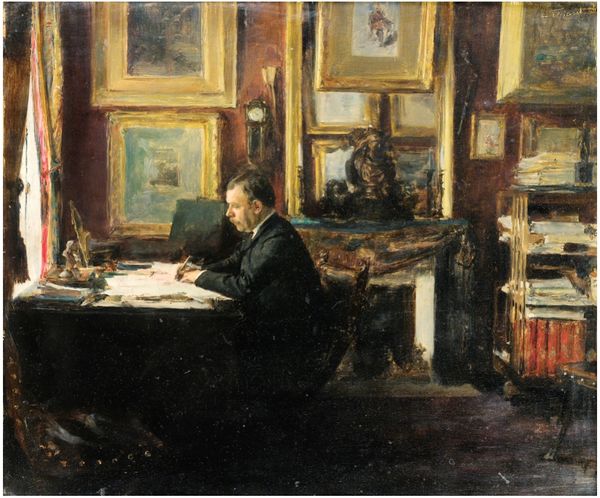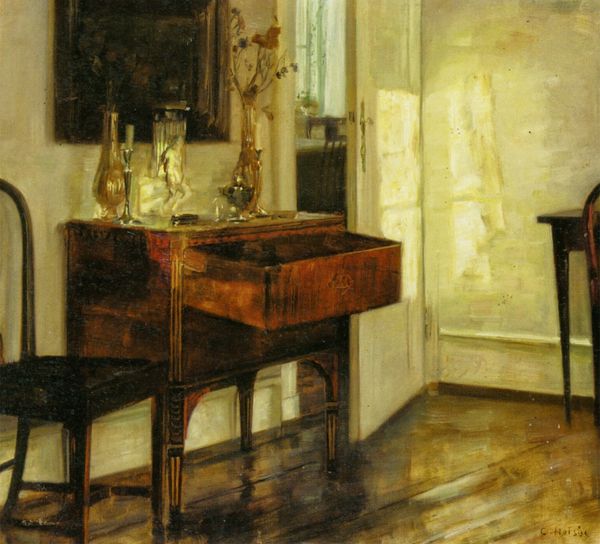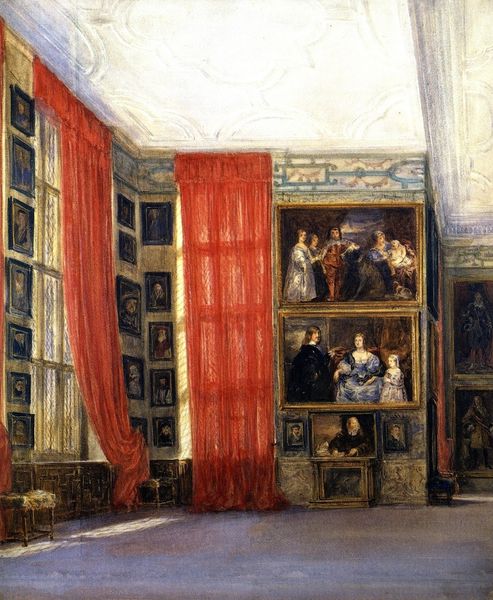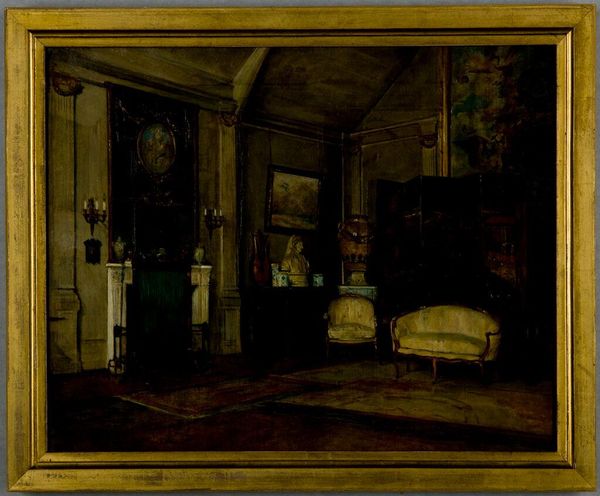
painting, oil-paint
#
art-nouveau
#
painting
#
oil-paint
#
landscape
#
charcoal drawing
#
oil painting
#
symbolism
#
genre-painting
#
realism
Copyright: Public domain
Editor: We're looking at "Inneres Der Johanneskirche Zu München," painted by Albin Egger-Lienz in 1890 using oil paint. It depicts the interior of a church. I find the composition so striking; it’s dark, almost somber, but with these pops of light catching on the architecture. How do you see this painting through a formal lens? Curator: I see a compelling exploration of space and light, a dialogue between the palpable solidity of architectural forms and the ephemeral nature of illumination. Note how the artist uses the verticality of the columns and the imposing iron gate to create a sense of depth, almost a recession into the unknown. Editor: The iron gate is particularly fascinating – its intricate details, though somewhat obscured, seem to act as a barrier between the viewer and… what exactly? Spiritual enlightenment? Curator: Precisely. The gate's complexity, rendered with visible brushstrokes, juxtaposes the smooth, almost featureless expanse of the floor. This opposition creates a tension. Furthermore, observe the strategic placement of light: it doesn’t evenly distribute but rather highlights specific points, guiding the eye. The praying figure is a key component in understanding spatial relationships. Editor: It is true that my eye is immediately drawn to that praying figure, kneeling near the gate. It’s amazing how just a small detail pulls it all together! The artist truly guides our experience and creates layers within the piece. I'll need to pay better attention to all the details to further investigate the formal relationships between different parts. Curator: Indeed, the beauty lies in its meticulously crafted structures and arrangement of pictorial elements.
Comments
No comments
Be the first to comment and join the conversation on the ultimate creative platform.
